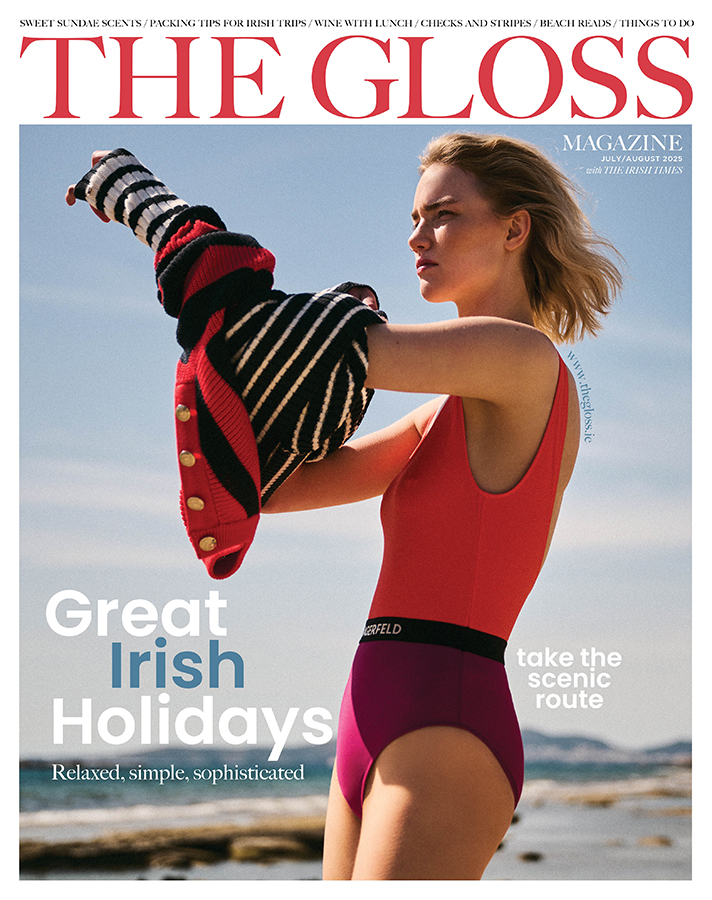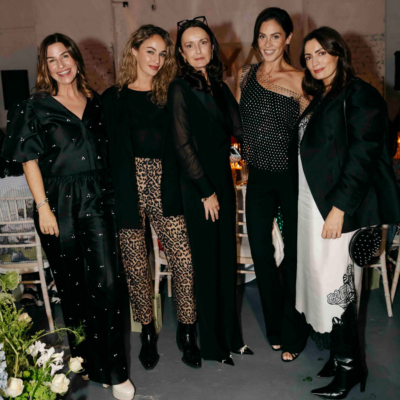Nicola White is a novelist, short fiction writer and essayist with a background in the visual arts. Born in Dublin, she spent some of her formative years in New York. After graduating from Trinity College, she lived in London and Belfast before moving to Glasgow to work as a contemporary art curator, later producing documentaries for the BBC. She won the Scottish Book Trust’s New Writer Award in 2008 and was Leverhulme Writer in Residence at Edinburgh University in 2012. She has published work in a range of journals, anthologies and for broadcast on Radio 4.
White’s debut novel, In the Rosary Garden, was partly inspired by the Ann Lovett case, and the Kerry Babies Tribunal in 1984. For this, she won the Dundee International Book Prize 2013, and was shortlisted for the McIlvanny Prize in 2014. In the Rosary Garden was chosen by Val McDermid as one of the best debuts at the Harrogate festival and was one of the Glasgow Herald’s books of the year.
White’s new novel, A Famished Heart, is the first in a trilogy of Dublin mysteries centred around Detective Vincent Swan. Set in 1982 and based on true events, the story begins when parish priest Father Timoney discovers Berenice and Rosaleen MacNamara in a shocking state. They appear to have starved to death – while someone watched. Together with his side-kick Gina Considine, Detective Swan becomes personally invested in their double death when budget cuts and a pending inquest force his department to suspend the case. When Francesca MacNamara, a glamorous but cash-strapped actress flies home from New York for her sisters’ funeral, she moves into their empty house with her niece Madeleine Moone – are they asking for trouble?
Through different character perspectives, White paints a vivid picture of a previous Ireland: grimy and glassy, where tenements still exist and homosexuality is not yet legal. The author’s cleverly paced narrative gently lures you into her web, before seizing you like a satisfied spider. While certainly a crime novel in tone, there is a fine balance of humour and powerful imagery which emit a warm glow between darker passages.
Liz Nugent has called A Famished Heart, “An intriguing, compelling and highly entertaining story. Formidably impressive writing!”

Nicola White lives with her partner in the Scottish Highlands. She is currently working on her next novel.
A Famished Heart (€10.99) is published by Viper and available from bookshops nationwide.
On home
I live in Cromarty, a beautiful coastal town north of Inverness with my partner and our spaniel, Bridget. It has Georgian houses and huddled cottages, and a population of dolphins – in the sea, not the cottages – but the firth is also a centre for the energy industry, so there are oil rigs parked up in the water and huge wind turbines being constructed across the channel at Nigg, so it’s an interesting mix. We started to come here on holiday, especially for the winter film festival, and finally gave in to its charms three years ago. I’ve never lived in a small town before, and it’s very sociable – every day starts with a walk along the beach with a bunch of other dog owners, followed by the best coffee in the highlands at Slaughterhouse Coffee, a wooden shed by the ferry slip. There’ll be some early morning rowers there, the ferry crew and a few fellow freelancers. All this morning chat sets me up for a day alone at the desk.
On roots
My first years were spent in Rathmines, and when I think of those times they seem ridiculously ancient – the coal man had a horse and cart, you queued for your groceries at Findlaters and there were still logo-ed vans for the Swastika laundry. The house was full of books, and my parents had a lot of parties, with much singing and smoking and reciting of anecdotes. I remember a huge disappointment when a liberal guest let me have some of the cream off the top of his beer. I thought it tasted like earwax. My big brother Jonathan was the leader in most things, especially when it came to showbiz. We used to hold “concerts” and plays on the top of our front steps for the dubious pleasure of passers-by.
On New York
In 1967, we moved to Manhattan, which was quite a shock. My father worked with Bord Fáilte and was transferred to their shining office on Fifth Avenue. It was all very Mad Men. We lived in a residential hotel near Central Park with an eccentric variety of tenants. I didn’t get on well at school, but took frequent refuge in the Natural History Museum across the road from our hotel, which was a labyrinth of wonders. It was a time of great upheaval in America – the Vietnam war, assassinations, the counterculture, the moon landing. Stoned hippies in the park would hand you flowers. My parents emphasised how lucky we were to be there, and I remember it all vividly, but was rather overwhelmed much of the time. Books were a refuge.
On early reading
My mother taught me to read very early, so it was a case of reading to ourselves, mostly. My first love was Dr. Seuss, who was a genius with rhyme and rhythm. When we moved to the states, I discovered that the library would lend you a dozen books at a time, and I would walk home from Broadway with my chin balanced on top of my stack, feeling like a millionaire. Because I felt insecure myself, I liked mawkish books about poor orphans battling the odds and anything with a touch of Gothic, like The Children of Green Knowe, with its ghosts and hauntings. I’d also read anything with a girls’ boarding school in it.
On creating
I work in an attic room, like a writerly cliché. There is something about going up those steep steps that makes you feel separated from mundane things. My desk is an old door on trestles that fits into an alcove. I don’t face the skylight when working, because the business of the town is too distracting. On warm days, I stick my head out of the roof and watch what’s going on down at the harbour. Two hundred years ago, Keats left from there with a very bad cold after a miserable tour of the west. I think of him often, and the few years he had left to write in – a spur to get back to my desk. Amazing to think there was a regular boat to London from this small place. When I’m not in Cromarty, I like working in cafés and trains. Actual libraries are too quiet.
On bookshops
There’s a wonderful second-hand book shop in Inverness called Leakey’s. It’s in an old chapel, with an interior balcony around three sides and a wood burning stove in the centre – very dramatic. It’s a great place to find interesting first editions and I’m a sucker for some of the illustrated Folio editions. I buy more than I read of course, which is starting to become a practical as well as an existential problem.
On her “To Be Read” pile
Too many, they are sliding right under the bed at the moment. I’m a relatively slow reader, so the pile includes Rachel Carson’s The Sea Around Us and Adam Nicholson’s A Seabird’s Cry, both of which I was reading for an essay about fulmars I wrote for The Dublin Review. The essay has just been published but I can’t let them go, especially the Carson – she is so good. Next up is a 1980s book of essays I found by Fintan O’Toole called A Mass for Jesse James. As I move into writing the third book of my trilogy, I want to immerse myself back into Dublin in the 1980s. But there are some novels released this year I won’t be able to resist, like Anne Enright’s Actress and Liz Nugent’s Our Little Cruelties.
On escape
I live in a place where other people come to escape, so I have access to an abundance of beauty and space. I go rowing out on the water with our community skiff club and love it when we get out far, then stop for a break, just leaning on the oars and bobbing about in a small boat on a big sea. My ideal holiday is to spend time in a big city – Paris or Berlin or Glasgow. I love to go and see exhibitions, then sit in a café and watch a river of people pass by.
On A Famished Heart
It began with a newspaper cutting. There are things that happen in the world that have a strong resonance, for no conscious reason, but I know to recognise them and save them until they form into something. This cutting was about the case of the Mulrooney family, three sisters and an aunt, who starved themselves to death in Leixlip in 2000. I expect a lot of people remember it. Much of the press coverage asked how something so devastating could happen so quietly, without anyone knowing. At some stage, thinking about them, I found myself wondering What if someone did know? And that was the start of the book. I was especially interested in the drama of quiet lives and the use of hunger as protest. But I have to emphasise that my book is not the Mulrooney’s story, those circumstances were a starting point, and I’ve made a very different family in a very different time, just one year after the Maze hunger strikes.
On crime
I think mystery and crime fiction are infinitely capacious in form – from light entertainment to darkest tragedy. I started writing in the genre because I enjoyed reading it, but also because it has a narrative discipline – you present questions that demand answers. The search for these is like a guide rope around which you can do all kinds of things with character and setting. Donna Tartt once said that her goal was “compulsiveness with depth”, and I think that’s the ideal.
Although I’ve lived in Scotland for most of my adult life, when it comes to writing I feel very Irish, those are the voices that feel most urgent to me, so it’s a fantastic thing to be supported by writers like Liz Nugent and Jo Spain. It does feel like a very good time for Irish crime fiction, doesn’t it?
On what’s next
I’m just starting into the third book of the Vincent Swan trilogy, which is only a whirl of mad ideas and settings at the moment. In my head it’s completely dazzling, but reality may bite soon enough in translating that to written words. I also have a half-made thriller set in Glasgow that I want to finish and a few other book ideas waving in my peripheral vision. Maybe this is the year that I will learn to write faster!
LOVETHEGLOSS.IE?
Sign up to our MAILING LIST now for a roundup of the latest fashion, beauty, interiors and entertaining news from THE GLOSS MAGAZINE’s daily dispatches.










